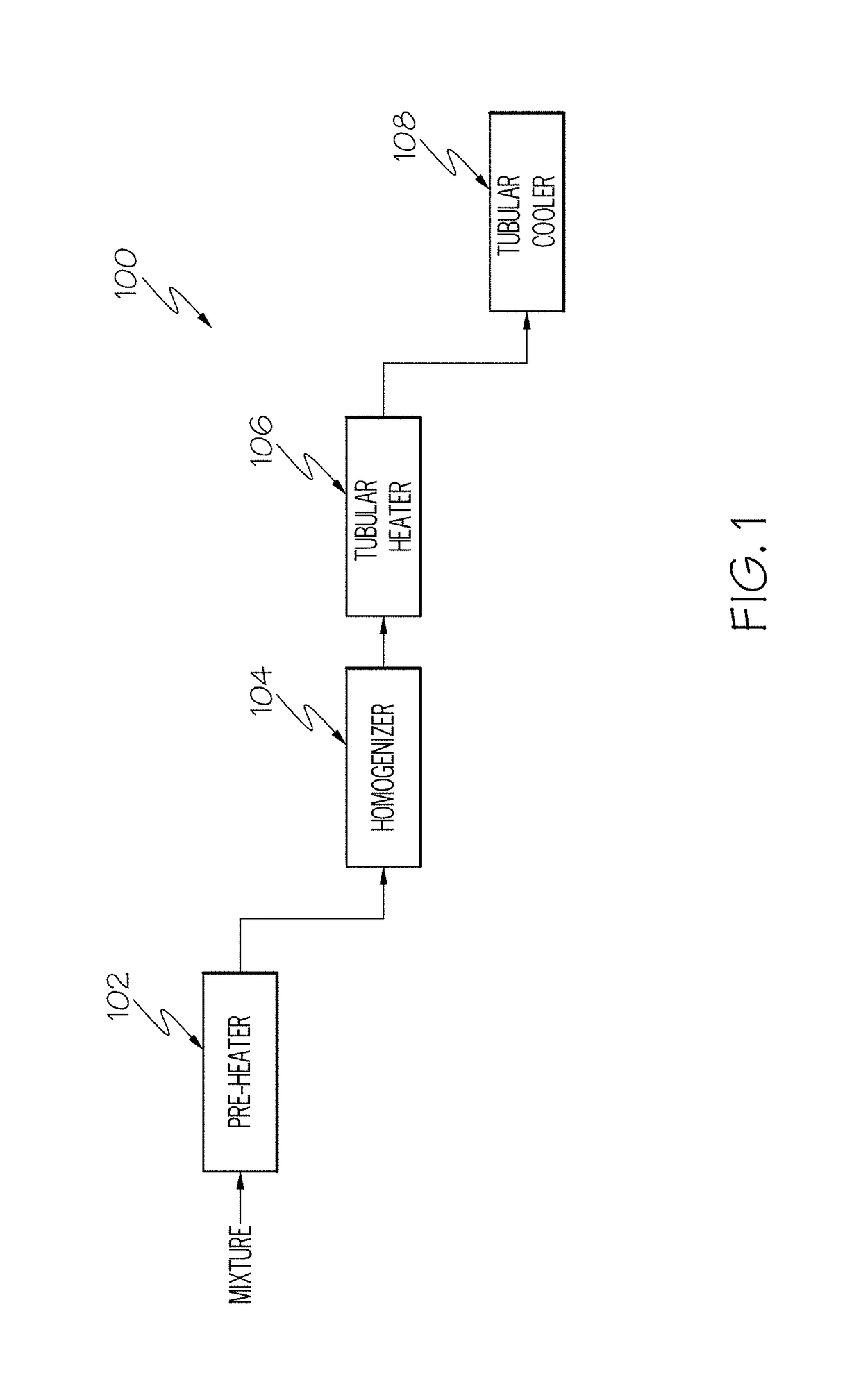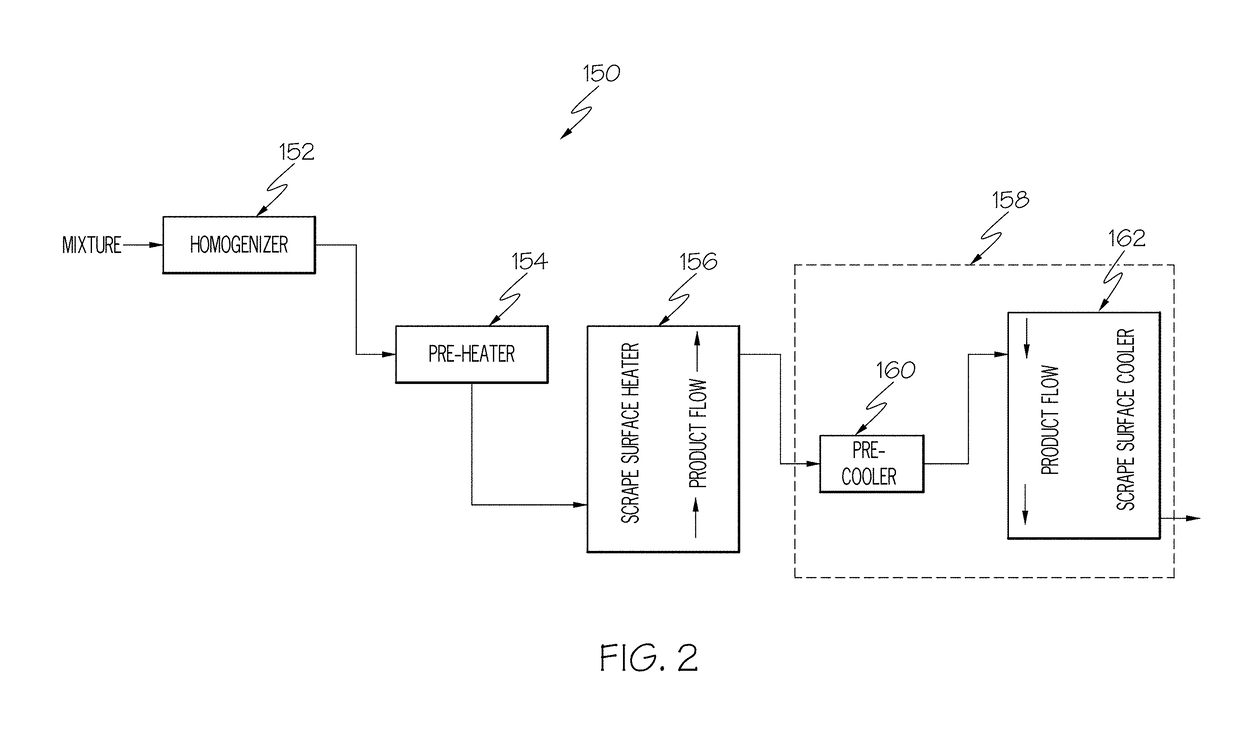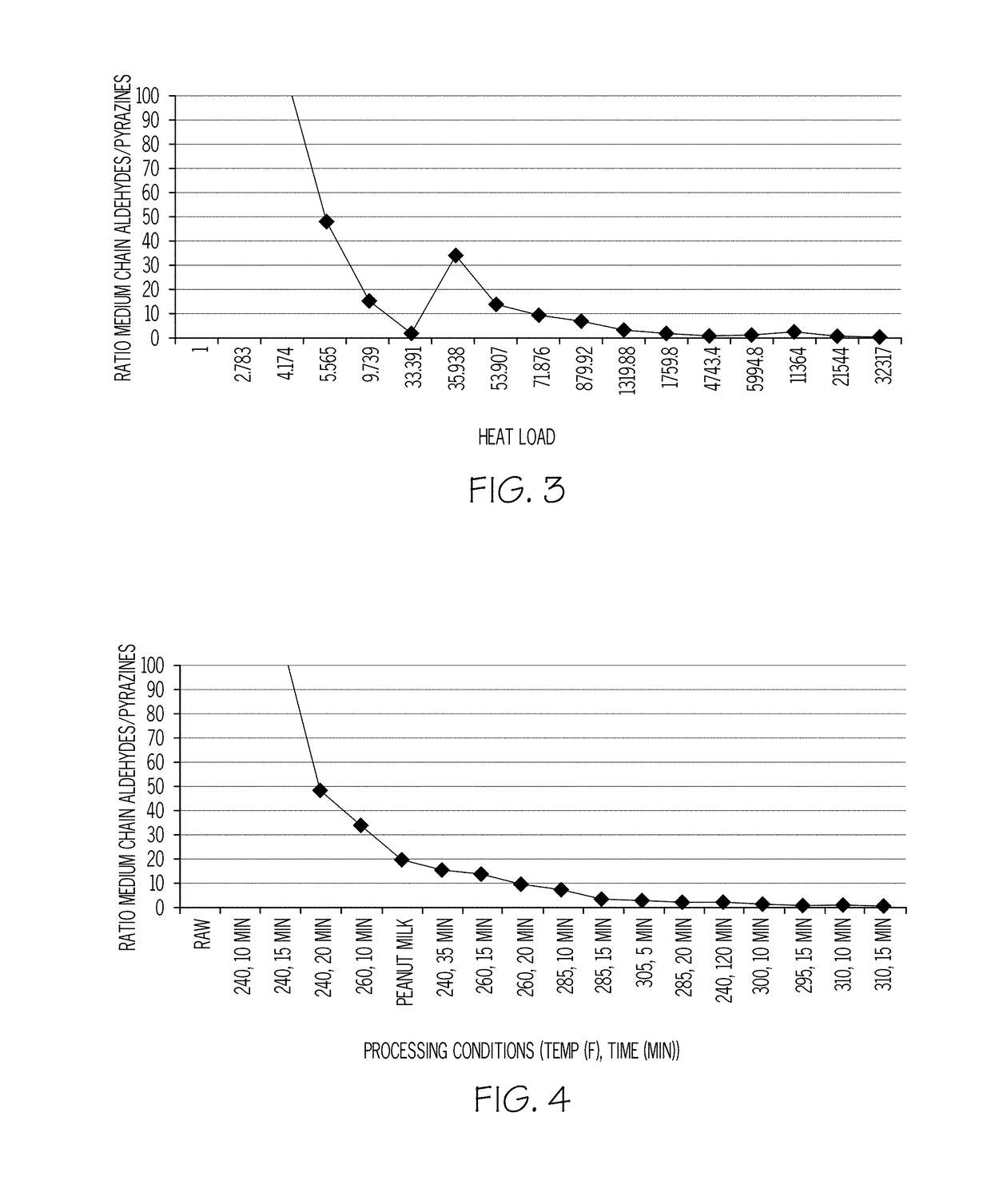Stable protein products and methods for making the same
a protein and stable technology, applied in the field of protein products, can solve the problems of unsatisfactory for consumers, and relatively high cholesterol content of dairy milk
- Summary
- Abstract
- Description
- Claims
- Application Information
AI Technical Summary
Benefits of technology
Problems solved by technology
Method used
Image
Examples
example 1
[0081]For this study, 17 peanut paste samples were prepared. The samples were produced from peanuts processed at the temperatures and times listed in Table 1. Table 1 also lists the heat load for each sample, calculated as described hereinabove. One sample (Example 9) of peanut milk (obtained from peanuts processed at 240° F. (115.56° C.), for 35 minutes) was also prepared and analyzed.
TABLE 1Peanut processing conditions for volatileorganic aroma compound analysisProcessing TempProcessing TimeHeat LoadSample(F.)(minutes)(Calculated)Comparative7001Example AComparative240102.783Example BComparative240154.174Example CComparative240205.565Example DExample 1240359.739Example 224012033.391Example 32601035.938Example 42601553.907Example 52602071.876Example 628510879.92Example 7285151319.88Example 8285201759.8Comparative295154743.4Example EComparative300105994.8Example FComparative305511364Example GComparative3101021544Example HComparative3101532317Example IExample 9 (Peanut240359.739Milk)
[...
example 2
[0090]To assess the effect of roasting time and temperature on protein products comprising a mixture of protein particulates from peanuts and water, peanuts were heated under three separate processing conditions: 238° F. (114.4° C.) for 20 minutes corresponding to a heat load of 4.308; 248° F. (120° C.) for 35 minutes corresponding to a heat load of 27.01; and 255° F. (123.9° C.) for 35 minutes corresponding to a heat load of 1759. The protein products heated at 238° F. (114.4° C.) for 20 minutes included 13.90 wt. % peanut paste; 85.10 wt. % water; 0.25 wt. % baking soda; 0.30 wt. % calcium carbonate; 0.40 wt. % cellulose gel, and 0.05 wt. % carageenan. The protein products heated at 248° F. (120° C.) for 35 minutes included 8.68 wt. % peanut paste; 90.37 wt. % water; 0.25 wt. % baking soda; 0.30 wt. % calcium carbonate; and 0.40 wt. % cellulose gel. The protein products heated at 255° F. (123.9° C.) for 35 minutes included 11.81 wt. % peanut paste; 87.19 wt. % water; 0.25 wt. % ba...
example 3
[0092]In order to evaluate the effect of different sterilization processes on the aggregation of protein in the peanut milk, four identical samples of peanut milk (Examples S1-S4) were prepared and processed under different sterilization conditions. Each sample of peanut milk included 13.90 wt. % peanut paste; 84.7 wt. % water; 0.3 wt. % baking soda; 0.6 wt. % calcium carbonate; and 0.5 wt. % cellulose gel / cellulose gum. The peanut paste was derived from peanuts initially steamed at 200° F. (93.33° C.) for 4.5 minutes and then heated at 270° F. for 35 minutes. The peanuts were then ground to a paste having an average particles size of approximately 39 microns. Example 51 was not subjected to a sterilization process. Example S2 was subjected to a direct sterilization process with the peanut milk being held at a temperature of 275° F. for 7 seconds (the direct sterilization process will be described in more detail below). Example S3 was subjected to an indirect tube and shell steriliz...
PUM
 Login to View More
Login to View More Abstract
Description
Claims
Application Information
 Login to View More
Login to View More - R&D
- Intellectual Property
- Life Sciences
- Materials
- Tech Scout
- Unparalleled Data Quality
- Higher Quality Content
- 60% Fewer Hallucinations
Browse by: Latest US Patents, China's latest patents, Technical Efficacy Thesaurus, Application Domain, Technology Topic, Popular Technical Reports.
© 2025 PatSnap. All rights reserved.Legal|Privacy policy|Modern Slavery Act Transparency Statement|Sitemap|About US| Contact US: help@patsnap.com



